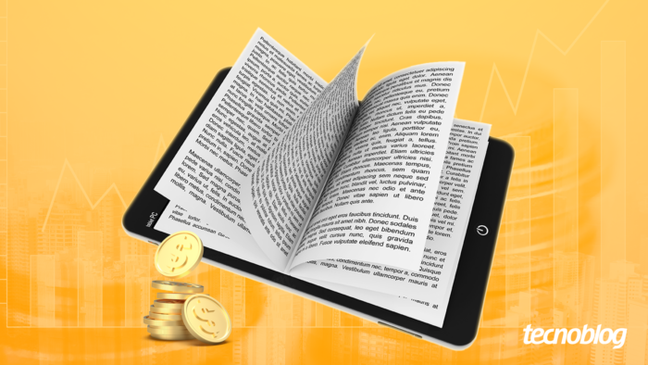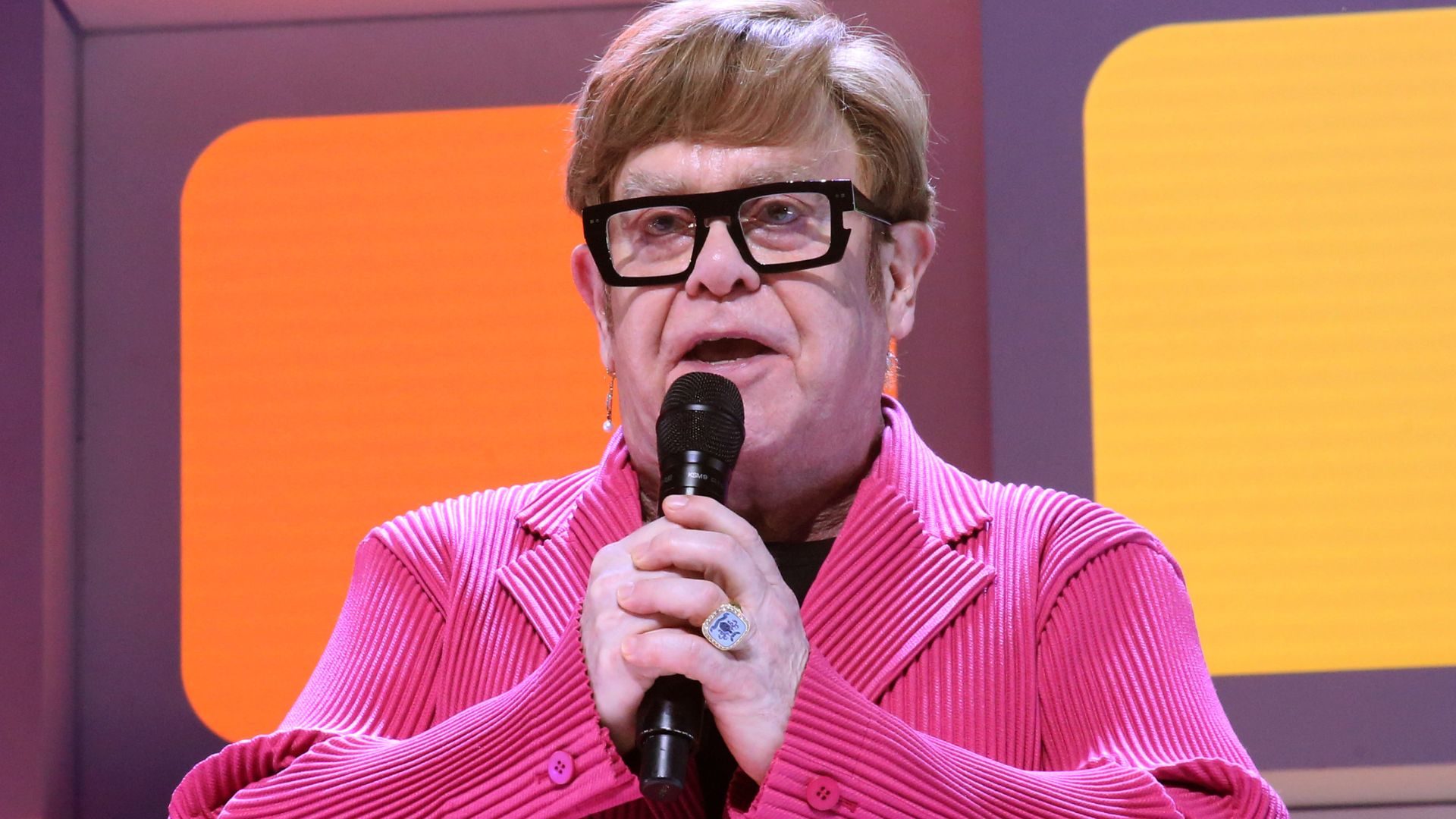Independent writers who publish through Amazon must incur a delivery cost for the digital book each time it is sold under the 70% royalty model.
The idea that a digital book has delivery value may seem strange, but there is such a fee. When they choose to receive 70% royalties, independent writers using Amazon’s self-publishing platform pay an e-book delivery fee, which varies based on file size.

A few months ago, ebook delivery rate became a viral topic on social media. Author Thais Bergmann was one of those responsible, as she posted a video on TikTok in which she commented on the existence of the tariff. The writer’s post showed that authors who publish via Kindle Direct Publishing (KDP), Amazon’s self-publishing platform, pay this fee when they choose the 70% royalty option.
The information is publicly available on the platform’s digital book pricing page, which also makes it clear that the cost is only charged under this condition (authors who choose the 35% royalty option do not have this amount deducted from the sale).
According to Amazon, e-book delivery costs are equal to the number of megabytes of the digital file in question multiplied by the local delivery cost. This amount, in Brazil, is R $ 0.30 / MB.
In the case of files with fractional sizes, Amazon rounds to the nearest kilobyte and, after multiplication, the final value is also adjusted to two decimal places, so that the minimum delivery cost of a digital book ends up being R $ 0. 01 for sales in real.

Returning to Bergmann’s case: when a reader buys the book Our last summer via Amazon, pay R $ 5.99. But from this amount, R $ 0.31 is taken from the e-book delivery fee, which brings the amount down to R $ 5.68. It is only then on this amount that the author’s 70% royalties are applied, causing the Thais to eventually take home R $ 3.98 for the work.
Another book by the author, Reasons to (not) meet, it is sold in a heavier digital file (6.77 MB). Here, the amounts subtracted in a 70% royalty simulation are even higher.
In this case, if the book cost BRL 5.99, then only BRL 3.96 of the original amount would remain, as the e-book delivery fee is BRL 2.03. Finally, 70% of the author would be applied to this amount – and Bergmann, at the end of the operation, would only earn R $ 2.77 from the sale of the book.
Why is there a delivery fee for the ebook?
Despite the clarifications on the functioning and the calculation of the fee, on the platform page there is no official explanation as to which charges it includes or why this amount would no longer be deducted from the sales percentage that belongs to Amazon.
These questions, however, were raised by users in the comments on the video that went viral. The most plausible theory is that possible services would be behind this cost, such as cloud storage, server maintenance and data traffic.
However, Bergmann criticizes the accusation:
“Although I understand [as justificativas apresentadas], I think it’s important to remember that Amazon already charges 30% of the book’s value per sale. Having no technical knowledge on the subject, I cannot say if this figure is sufficient or not, but, as an author, I believe it unfair that we pay it (and it is not a modest sum!), Given that literature is already so undervalued and we earn so little “.
The author is not the only one dissatisfied with the situation. Tico Farpelli, who wrote A cold day And The time that separates us (works published by KDP), in addition to finding the company’s rate “a bit absurd, since, unlike sending physical books, a connection between the Amazon system and the Kindle is enough to make the delivery”, also does not understand why this amount is charged separately.
“I believe [a taxa] it is yet another way to profit from jobs. And what confuses me is the fact that the author already takes only 70% of the royalties, at best, and still has this part subtracted from his already meager profit “Farpelli says.

It is worth noting that the video recorded by Bergmann generated a lot of discussion among authors and readers on TikTok, which, until the close of this article, had more than 20 thousand likes, 220 shares and 238 comments. The messages were divided between the tone of revolt for the rate applied and discussions on possible services behind the cost.
Lucas Cabrero, writer of the book January childrenpublished by KDP, he is one of those who, contrary to his colleagues, find the existence of such a fee understandable, even if he is unable to assess how fair the price charged is.
“In my opinion, it’s a consistent charge, as it’s the cost of transmitting the file itself. This consumes bandwidth and the charge is just that, the bandwidth spent. The charge is consistent, but I’m not sure if the value is also “reflects the author.
wanted by technoblog For an official position on the services behind the fee, Amazon did not comment on the matter until this article was closed. The space remains open to the company, in case it wants to explain more details on the matter.
Authors with a publishing house live another reality
For those wondering if the same goes for authors who publish on Amazon through a publisher, it’s worth understanding the differences that exist between the two markets.
Juliana Daglio, who has books like the black lake And Grandma called the devil for dinner independently published on the platform, he has also experienced the other side of the coin by having one of his works available on Amazon via Grupo Editorial Record.
For this situation, the author explains how the author’s relationship with the published e-book works:
“With Lacrymosa, I have a standard contract, which is a contract in which the publisher is entirely responsible for all digital and physical distribution of the book. […] As an author, I have not had access to the distribution of my e-book, even though I normally receive royalties, as per contract, and personally I pay nothing to have my book on Amazon. “
Daglio, who also works behind the scenes of the market, explains that this distribution is also outsourced by publishers, since, behind them, “there are still other companies responsible for publishing the book.”
The Amazon platform dominates the market
Kindle Direct Publishing isn’t the only self-publishing program available in Brazil, but in addition to offering some services, such as free and fast publishing, it also has a huge market share.

To give you an idea, in August 2021, according to the data released by Appearance, the platform had already reached the threshold of 200 thousand titles available in the country. A popularity also felt by the independent authors who are there.
“There are other platforms, and yes, you can find space in another way, but Amazon is by far the largest of them all. As an independent author, it makes no sense, at least in my opinion, to publish elsewhere, even if we have to address these and other platform problems “Bergmann explains.
The importance of Kindle Direct Publishing is even a consensus among the authors interviewed for this article. In the absence of a publisher to support their work, authors who need to launch into the market seem to feel a certain “obligation” to be on Amazon and, consequently, have to deal with the conditions imposed by it.
“For me, that [a taxa de entrega de e-books] emphasizes how much Amazon can send and dismantle as it passes to the creator, because many times we don’t have popular platforms like KDP. You’re kind of a hostage to them, because they’ve taken a huge chunk of the e-book market. The options exist, but not with Amazon’s reach and power “Cabrero points out.

The problems go beyond the canon
At first glance, the e-book delivery rate appears to be just the tip of the iceberg of the problems that independent authors face.
A situation that especially affects those who wish to have their works available on Kindle Unlimited – Amazon’s subscription service that gives access to digital books – since the author cannot publish his e-books on any other platform.
Karen Santos, a writer who has more than twenty books published by KDP, available on Kindle Unlimited, explains the situation:
“For me, as an author, I don’t think it’s right [a taxa de entrega] because I’m trapped inside an Amazon engineering. But that’s my problem with my book. I have to be exclusive to them, they charge me a commission to send it and the only way to read it is within their system. So we get stuck inside that cycle. But I write erotic novels and our earnings are 90% to 95% of the page read [via Kindle Unlimited]. So, we understand and follow this discussion, but for us what matters most is the value of the page read, which is also a very low price. “
And that’s not all. Santos reports that career management on the platform is a concern that falls entirely on the author, even though all of his work is available and exclusive to Amazon.
Among the issues raised by the writer are the diffusion and conversion of readers, the final experience of the public (very large files may not open to those who read through the app, for example) and even the piracy market, which affects a lot on official sales.
“Our product today is a house built on a rented land. The whole problem is much bigger than whether the shipping fee is fair or not. Because, while we keep this structure alive, it is not a structure that we have control over “says the author.
With information: Kindle Direct Publishing
The shipping costs for e-books on Amazon cause controversy among the authors
Source: Terra
Emily Jhon is a product and service reviewer at Gossipify, known for her honest evaluations and thorough analysis. With a background in marketing and consumer research, she offers valuable insights to readers. She has been writing for Gossipify for several years and has a degree in Marketing and Consumer Research from the University of Oxford.






